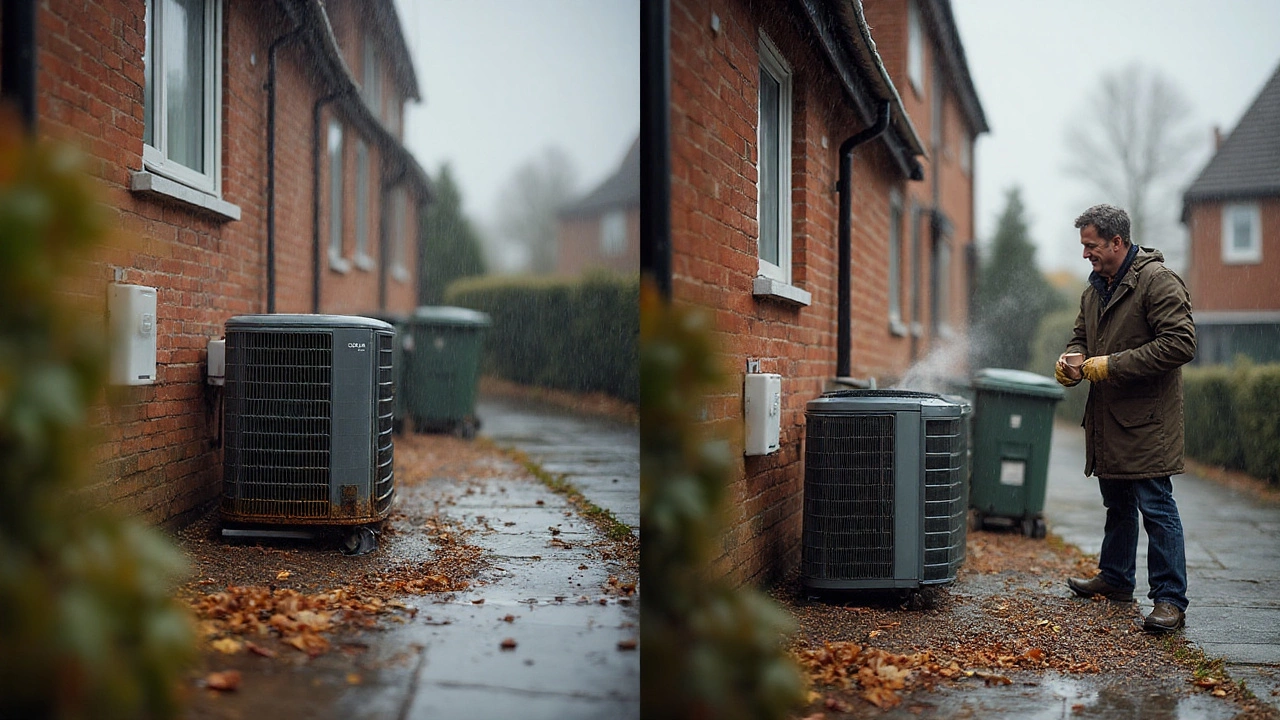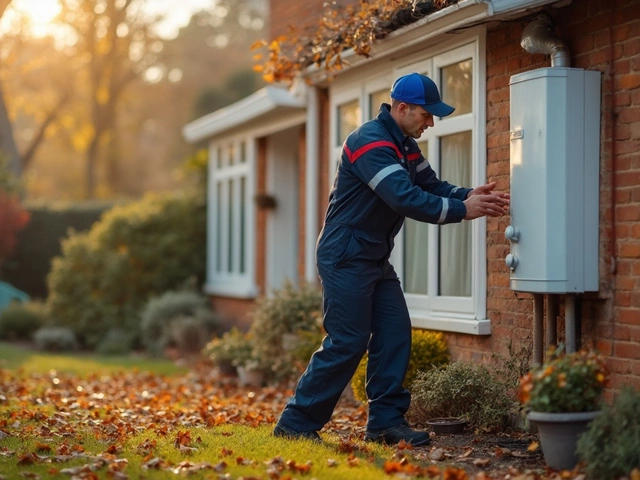Living in the UK means you deal with rain, cold snaps, and occasional heatwaves – all of which put extra stress on the things that keep your home running. Your washing machine, oven, heat pump, and water heater all respond to the weather, so a little know‑how can save you money and stop you from calling a repair service at the worst possible moment.
First off, humidity. When the air stays damp for weeks, moisture seeps into electrical components. That’s why you might notice a fridge that cools fine one day and starts making strange noises the next – the motor bearings can rust or short out. Cold weather is another culprit. A heat pump that works great in mild temperatures can lose efficiency once the mercury drops below 5°C, making your heating bills jump.
Even something as simple as a washing machine can suffer. Cold water in the inlet hoses can cause the pump to work harder, and freeze‑thaw cycles may crack plastic parts over time. Ovens aren’t immune either; frequent temperature swings can strain the heating element, leading to uneven heating or a complete failure.
And don’t forget the water heater. In areas with hard water, mineral buildup grows faster when the water sits hot for long periods, especially in the cooler months when you use hot water more often for showers and cleaning.
Here’s the good news – you can tackle most of these issues yourself with a few easy habits.
1. Keep it dry. Use a de‑humidifier or place silica gel packs near exposed electronics, especially in the kitchen and laundry. Wipe down any condensation that forms on appliance surfaces.
2. Insulate water lines. Curling foam around the hoses that feed your washing machine and dishwasher prevents freezing and reduces the pump’s workload.
3. Clean the heat pump filter monthly. A clogged filter forces the unit to work harder, which not only spikes energy use but also shortens the lifespan of the fan motor.
4. Descale the water heater annually. A simple vinegar flush or a commercial descaling solution keeps mineral buildup in check and helps the heater stay efficient.
5. Check oven seals. After a cold spell, the gasket around the oven door can shrink or crack. Replacing a cheap seal restores heat retention and protects the heating element.
Lastly, schedule a yearly service with a trusted local technician. Even if you’re handy, a professional can spot worn bearings, loose wiring, or gas leaks that you might miss.
By staying ahead of the UK’s fickle weather, you’ll keep your appliances humming, your utility bills down, and your home comfortable all year round.

Real UK lifespan for air vs ground source heat pumps, what shortens or extends life, maintenance steps, and a simple repair-or-replace guide you can actually use.

Replacing a boiler can seem like a daunting task, but knowing what to expect can make the process easier. Typically, boiler replacement involves several steps including removing the old unit, choosing the right size and type for your home, and ensuring proper installation. Skilled professionals often make the experience smoother by handling the technical aspects and minimizing disruption. Preparation and understanding of the process can help homeowners tackle this job with confidence.

Cracked or damaged glass hobs make you panic, but not every problem spells doom for your stove. This article breaks down what issues can actually be fixed and when it's smarter to replace the glass. You’ll get real-life tips, possible repair options, and clear warnings for common mistakes. Safety comes first, but you’ll also find out when you can handle things yourself—or absolutely need a pro. Practical info, simple steps—you’ll get the full story on glass hob repair.

You can usually use the toilet when your boiler is being replaced, but water may be shut off during installation. Learn when it’s safe, how to flush without water, and what to ask your plumber to avoid surprises.

Plumbers can install extractor fan ductwork, but only electricians can legally wire them. Learn who to call for safe, code-compliant installation and how to avoid costly mistakes.

Wondering when to replace your cooker? This article breaks down the real signs that your cooker is on its last legs, what affects its lifespan, and how to keep it running safely for longer. Get practical tips straight from real-life experience and find out how to spot issues before they turn expensive. Whether you use gas or electric, knowing when to repair or replace makes all the difference in your kitchen.